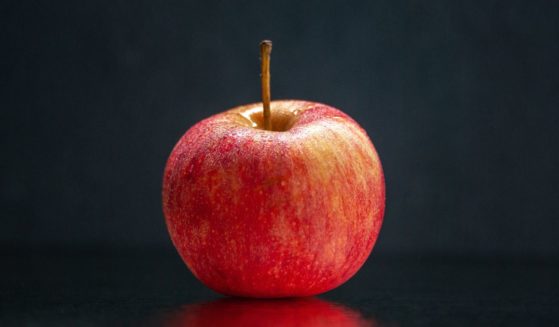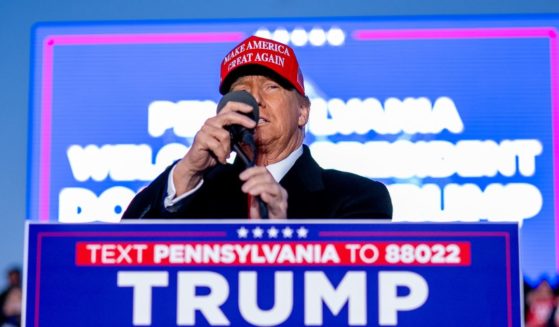Bob Ehrlich: US Needs Strong "China-Wary" Foreign Policy
In 2016, Vladimir Putin’s operatives purchased Facebook ads designed to exploit race and class divisions within American culture.
While most (but not all) of the ads supported candidate Trump, the Russians also contributed to the so-called dirty dossier — that packet of unverified Trump-related allegations pieced together by Christopher Steele on behalf of Fusion GPS.
Putin’s intelligence agencies also waged cyberattacks against the Democratic National Committee and Republican National Committee and congressional campaign accounts. Fortunately, there is no evidence actual votes or election results were compromised in any way.
Now fast forward to the present.
A mischievous but economically weak Russia, buffeted by a beaten-down energy sector, rampant corruption and slow growth, will no doubt engage in similar activities in the lead-up to the 2020 election. It’s what ex-KGB operatives do.
But Putin is reduced to playing a weak hand against his superpower foe. It’s tough to rebuild the Soviet empire without money in the bank — and former conquered republics unwilling to re-engage with Soviet-style shortages and domestic repression.
In contrast, communist China has rewritten the totalitarian playbook. The Deng Xiaoping era kicked off a state-sponsored, knockoff form of market capitalism officially referred to as “socialism with Chinese characteristics.”
This grand experiment in era-specific socialism (adapting Marxist/Leninist thought to modern challenges) has improved the economic lot for millions of Chinese citizens while continuing the central government’s often brutal suppression of individual rights.
But the cataclysmic events of the past six months have exposed the regime’s vulnerabilities as never before.
First came the disastrous attempted power play in Hong Kong in which the Beijing-controlled government attempted to pass a law that would allow the extradition of criminal defendants to the mainland under certain circumstances. The move led to large and boisterous demonstrations.
As the street protests grew larger and more violent, the Chinese leadership wisely backed down. The proposed law was withdrawn. Nevertheless, a newly empowered movement continued to coordinate large and at times violent protests that captured widespread media attention.
Although the threat of direct military intervention finally succeeded in lowering the collective temperature, the chapter represents a novel challenge to a politburo unaccustomed to widespread political dissent.
On the heels of that public relations disaster comes the even larger (and self-imposed) disaster: the cover-up of the coronavirus outbreak that began in Wuhan.
And for the second time, the government’s go-to audibles are not working. Indeed, the usual socialist recipe of deceit and state-sponsored propaganda (talk about fake news!) is floundering.
Chinese apologists are left to wonder why.
But that’s an easy one to figure out. You see, the regular (and too often accepted in the West) damage inflicted by Chinese belligerence (stealing of intellectual property, artificial island building in the South China Sea, saber-rattling vis-à-vis Taiwan, intimidation of Western corporate and academic institutions, heavy-handedness (and worse) toward Tibet and Muslim minorities, currency manipulation) is very real but often difficult to quantify.
For example, it’s sometimes difficult to get your head around the damage inflicted by China’s mischievous trade policies when influential voices such as the Chamber of Commerce keep telling you about the many benefits of free trade with China.
The present pandemic presents a much different dynamic. The 29,000 (and counting) American deaths, 662,000 (and counting) infections and likely economic recession as a direct result of Chinese government malfeasance is very tangible. Americans and the rest of the free world get the can’t-miss takeaway: Henceforth, tread carefully when dealing with the authoritarians in Beijing.
As always, America the sleeping giant prefers to avoid conflict, sometimes to its disadvantage. Yet confrontations are inevitable as a wised-up America begins to challenge undue Chinese influence at the World Health Organization and unravels raw material medicine supply chains controlled by a hostile state more than willing to leverage its advantage during a worldwide pandemic.
Bullying dictatorships are accustomed to controlling narratives. Reinventing and rewriting history is what they do. But the consequences of these monumental blunders run deep and will not go away easily or soon. Such is life for bad guys caught (excuse the pun) red-handed.
In this era, a strong China-wary policy is critical.
The views expressed in this opinion article are those of their author and are not necessarily either shared or endorsed by the owners of this website. If you are interested in contributing an Op-Ed to The Western Journal, you can learn about our submission guidelines and process here.
Truth and Accuracy
We are committed to truth and accuracy in all of our journalism. Read our editorial standards.












